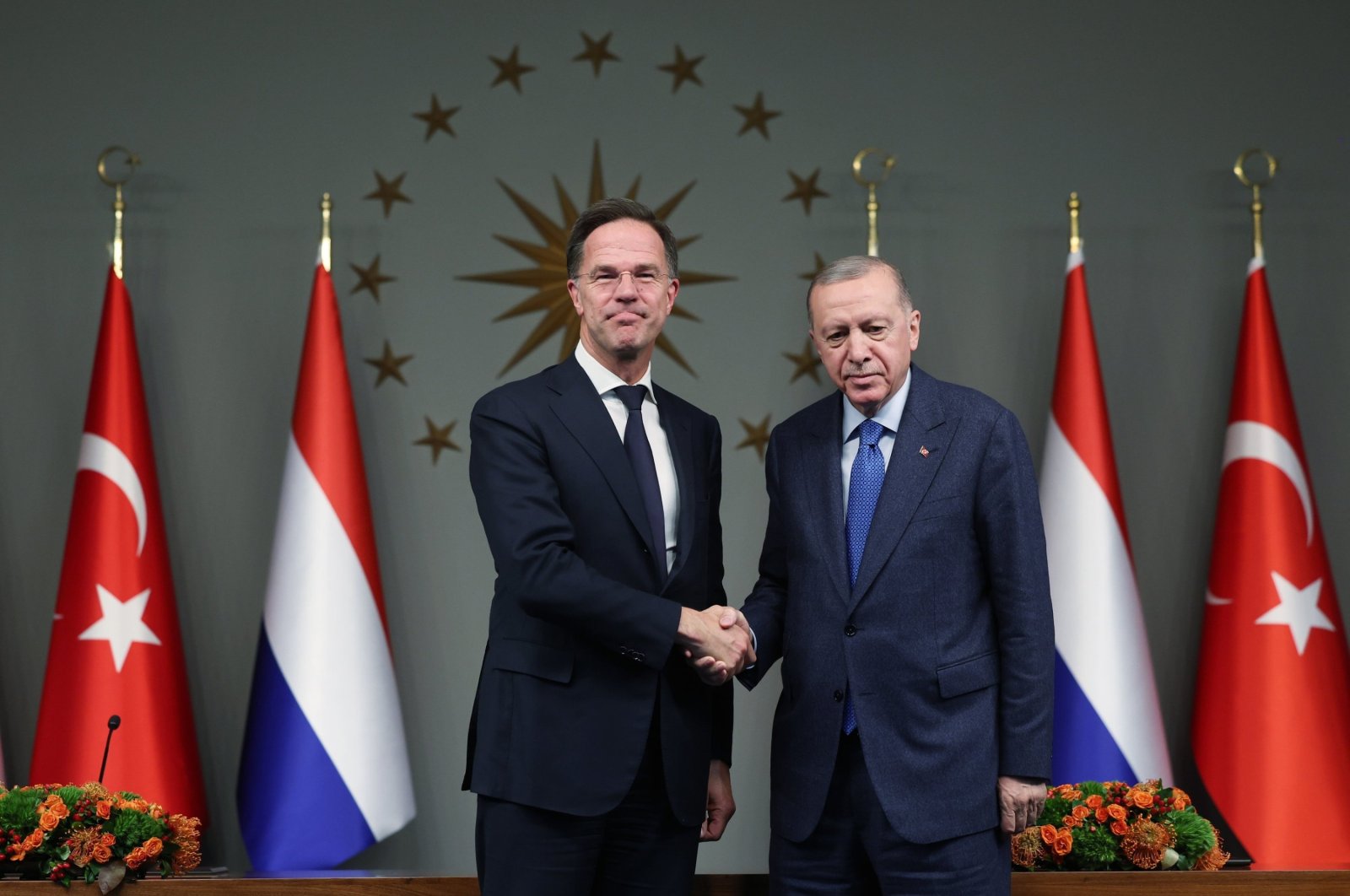
NATO’s new chief, Mark Rutte, on Tuesday said he and President Recep Tayyip Erdoğan "see eye to eye” on fighting terrorism, stressing the efforts must be undertaken within the "NATO context.”
At his first news conference as NATO secretary-general, Rutte reiterated his top three priorities in his new post: the capability to protect against any threat, support for Ukraine in fighting back the Russian war and addressing the growing global challenges to Euro-Atlantic security.
"There's nothing we can't achieve together," said Rutte, who officially took office on Tuesday in Brussels, succeeding Jens Stoltenberg.
Asked about Türkiye's expectations on the fight against terrorism and lifting embargoes between NATO allies, Rutte replied: "This is a very important issue."
Saying he had discussed these issues multiple times with Erdoğan, Rutte added that the two worked together during his 14 years as Dutch prime minister, and during Erdoğan's tenure as Turkish premier and later as president starting in 2014.
"I think I could say (that) we are close friends, and we see eye to eye on this, and clearly fighting terrorism is something we also have to take up within the NATO context," he said.
"He is not only pushing for that. I'm absolutely receptive to this because we have to work on this in conjunction," said Rutte.
"We will do that. We will have those discussions," he said.
Türkiye, a member of NATO for 72 years, has urged fellow alliance members to take a more principled stance against terrorist groups, citing in particular some NATO members' support for the PKK and its Syrian wing YPG, a terrorist group that threatens Türkiye's borders.
"Unfortunately, we have not received the expected level of support and solidarity from our allies thus far. We cannot tolerate this situation, nor is it consistent with the spirit of alliance, for the ringleaders of terrorist organizations that pose a threat to Türkiye's national security to be accepted as legitimate actors," Erdoğan said in a July magazine interview.
Apparently addressing Türkiye's push to end embargoes between NATO allies, Rutte also said: "I think it is important that within NATO there are no, let's say, boundaries in terms of who you can supply whatever. I know there's also sensitivity there, and we must work on that."
This June, Foreign Minister Hakan Fidan decried such restrictions between NATO allies, a long-standing issue for Ankara, saying: "Sanctions and restrictions not only affect the allied country subject to them but also undermine NATO's deterrent capability and defense capacity."
